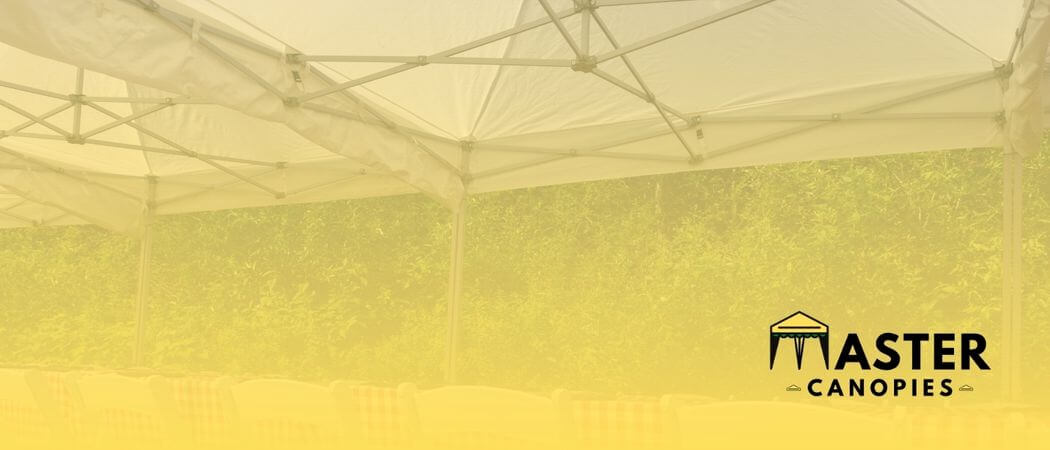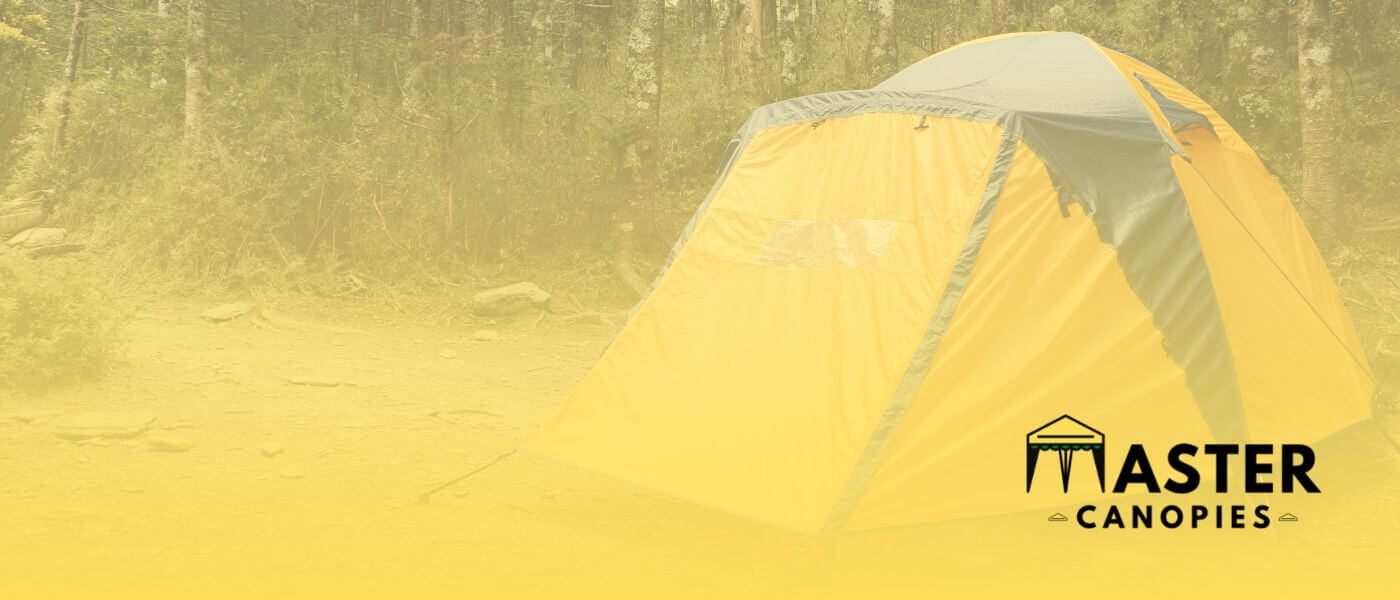
How to Print on a Canopy: How to Print Custom Images/Logos
How to Print on a Canopy: How to Print Custom Images/Logos Published February 4th, 2023 by Allen Campbell Do you want to print something special
Published February 4th, 2023 by Allen Campbell

Well, it’s no secret that a tent is a great camping essential – and that it can get pretty dirty after a great outdoor adventure. But what if you want to take your camping experience up a notch? Is it safe to dry your tent in the dryer?
The short answer is, “No!” It’s certainly not a good idea to put your tent in the dryer, regardless of how much dirt and mud it has accumulated. You don’t want to risk shrinking it, or worse, damaging the fabric. But why it is so risky? Let’s take a closer look.
Tents are made with lightweight materials that can be easily damaged by the heat and tumbling of a dryer. Even if you choose to use a low-heat setting, it could still cause permanent damage to your tent’s fabric or water repellency as well as shrink it down. The zipper on your tent could also become warped and not work properly anymore. Additionally, the waterproof coating on the tent could be damaged — leaving you with a wet and soggy sleeping bag.
Without proper care, you could end up with a tent that’s not only useless for camping but also completely ruined. I would highly recommend avoiding putting your tent in the dryer!
So, what should you do if your tent is dirty and needs to be cleaned? Fortunately, there are plenty of other ways to make sure it’s clean and ready for use. Below are some easy and safe ways to clean your tent.

According to my experience, the best way to safely dry a tent is by air drying it. All you have to do is hang your tent in an area with plenty of airflow, such as outside or in a well-ventilated room, and let it dry naturally. Allow some sunlight to hit the tent to help dry it faster, but make sure it doesn’t get too hot.
You can hang your tent on a clothesline, or if you don’t have a clothesline, use string or rope and hang it from a tree branch. However, it’s important that you don’t expose your tent to extreme temperatures or direct sunlight for too long. Over-exposure can cause premature fading, discoloration, and fabric damage.
How long it takes for your tent to dry depends on the conditions and size of your tent. However, it usually takes not more than 1 hour for a medium sized tent to completely dry in a sunny and windy day. If it’s not sunny and windy, then you should expect to wait a little longer.
Also, keep in mind that it might take longer for a larger tent. I would recommend patiently waiting for at least 1-2 hours to be sure that all parts of the tent are completely dry. But what if the weather is bad and there is no sunshine?
If your location is experiencing a bad weather and there is no sunshine, then you take your tent inside and hang it in a well-ventilated area. Since you do not have any clothesline inside, you can use a shower rod or curtain rod to hang the tent.
Make sure that the area is well-ventilated, and if possible, place a fan near the tent to help it dry faster. It is very important to create the ideal conditions for drying the tent, so try to get a small heater and a fan to help with the process. These both will help to replicate the warm and slightly windy conditions needed for drying the tent quickly.
Once you got these two, you can position the fan to blow across the tent and direct the heat from the heater towards it. Make sure the heater is not too close to the tent, and you should be able to dry it within an hour or two.
Following these tips should help you quickly and safely dry your tent, so you can avoid any unfortunate accidents and make sure that your tent is always in tip-top shape. Now get out there and start camping.
It’s safe to say that you shouldn’t put your tent in the dryer, no matter how tempting it might be. The heat could damage the material and cause the waterproof coating to break down. If you need to get rid of moisture, air out your tent or use the method mentioned above to replicate the ideal conditions for drying.
And most importantly, be patient and give your tent enough time to dry before packing it up for storage. With a little bit of effort, you can make sure that your tent is dry and ready for the next adventure.
Camping can be an absolute blast, but the one icky downside is breaking down a soggy campsite. While some people might rush to get their tent put away wet, experienced campers know it’s a big no-no!
Sure, there might not be any immediate consequences from doing so, but leaving a tent damp for too long can lead to mold growth and other problems that are anything but fun! Instead, take the time to give your trusty tent a quick once over before packing it up—it’ll save you time in the long run with freshening up your gear.
Sleeping in a tent isn’t quite like sleeping in the comfort of your own home. If you want to avoid sleeping in the equivalent of a quite poorly ventilated sauna, it’s probably in your best interest to air out your tent before spending the night in there.
While airing out a tent may not save you from all possible ramifications of living unattached to electricity, it’ll make sure that at least your slumber won’t be spent drowning in sweat.
A few minutes spent zipping up and unzipping windows and doorways can save you from hours spent suffering under the weight of humid air and cementing heat. In other words: don’t let your outdoor sleep-over become an armpit affair – if you want to get any actual rest, air out the tent!
Keeping your tent dry in the winter is no small feat! With arguably the most common and wet season on hand, it can be a challenge to stay dry (and find positives). However, a few precautions can go a long way – from double-checking that you’re pitching on an area clear of snow and moisture to being sure that all cracks and edges are sealed with waterproof sealant.
Another tip is to make sure you have enough ventilation in your tent as well – this can prevent condensation buildup which could also lead to soggy sleeping bags. Moreover, don’t cook inside of your tent – setting up a separate cooking area can be a good way to make sure that the heat from cooking doesn’t affect your sleeping conditions.
And finally, no one likes wet boots! Take them off and hang them outside of the tent for the night – you’ll thank yourself the next morning when they’re still dry. With these helpful tricks, you’ll be able to stay warm and dry in winter camping trips like never before!
Investing in a groundsheet can help keep moisture out of the tent, while some camping stores even offer waterproof tents that are designed to keep you dry in wet conditions. Additionally, make sure to set up your tent on high ground and stakes where possible – this will ensure that any pooled water goes around (and not through!) your tent.
Finally, if you can’t get away from a downpour, an easy trick to keep yourself dry is to suspend a tarpaulin – this will provide some shelter and keep you cozy even when the rain is pouring.

Allen is a full time writer at Mastercanopies.com and enjoys traveling around the United States and exploring nature. He enjoys writing about canopies as he believes they are extremely crucial in having a successful camping trip whether it be a trip to the beach, mountains, or the open plains.

How to Print on a Canopy: How to Print Custom Images/Logos Published February 4th, 2023 by Allen Campbell Do you want to print something special

How to Choose the Best Outdoor Event Flooring for your Next Celebration Published January 31st, 2023 by Allen Campbell Planning an outdoor event can be

How to Start a Tent Rental Business (and have Success with It!) Published January 23rd, 2023 by Allen Campbell Do you have a knack for

Wolfwise Beach Tent Instructions: Easy Setup Guide Published January 23rd, 2023 by Allen Campbell Let’s face it, setting up a beach tent can be tricky…

Best Tent Rentals in Downers Grove, IL Published January 12th, 2023 by Allen Campbell Hoping to make a big impact in Downers Grove? Well, if

Best Tent Camping Spots in Poconos Region Published January 6th, 2023 by Allen Campbell Tired of your boring old couch and the same four walls

When is the Best Time to Buy a Tent? Published January 5th, 2023 by Allen Campbell It’s a well-known truth that nothing beats the feeling

How to Remove a Doona Canopy Cover? Published January 5th, 2023 by Allen Campbell Removing a doona canopy cover can be tricky. You want to

Best Tent Camping in Gold Beach, Oregon Published January 6th, 2023 by Allen Campbell Ahhh Gold Beach – the wild west coast of Oregon. With

Master Canopies is here to bring you the best canopies for the outdoors so that you can enjoy the fresh air without the gleaming and burning light of the sun.

Master Canopies is here to bring you the best canopies for the outdoors so that you can enjoy the fresh air without the gleaming and burning light of the sun. As an Amazon Associate, we earn from qualifying purchases.